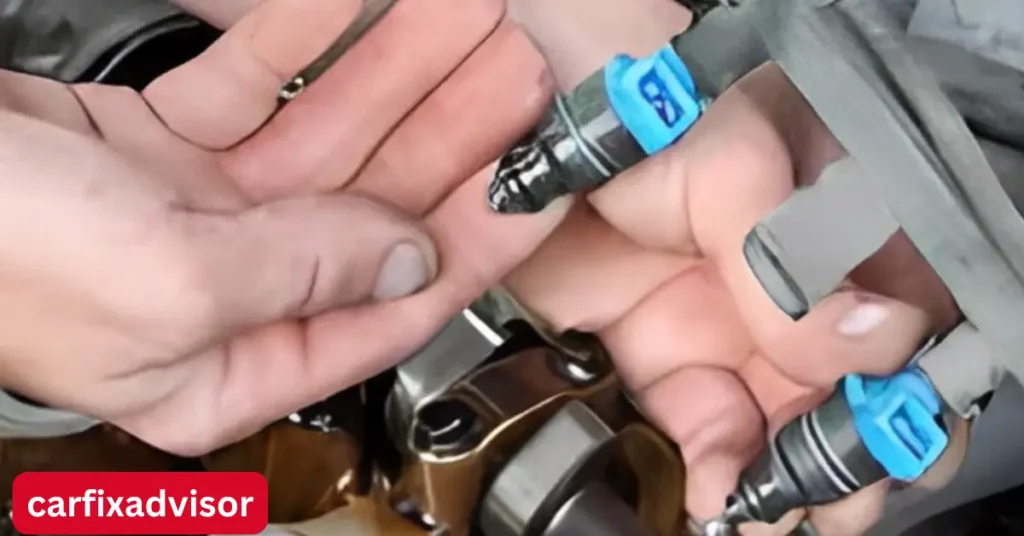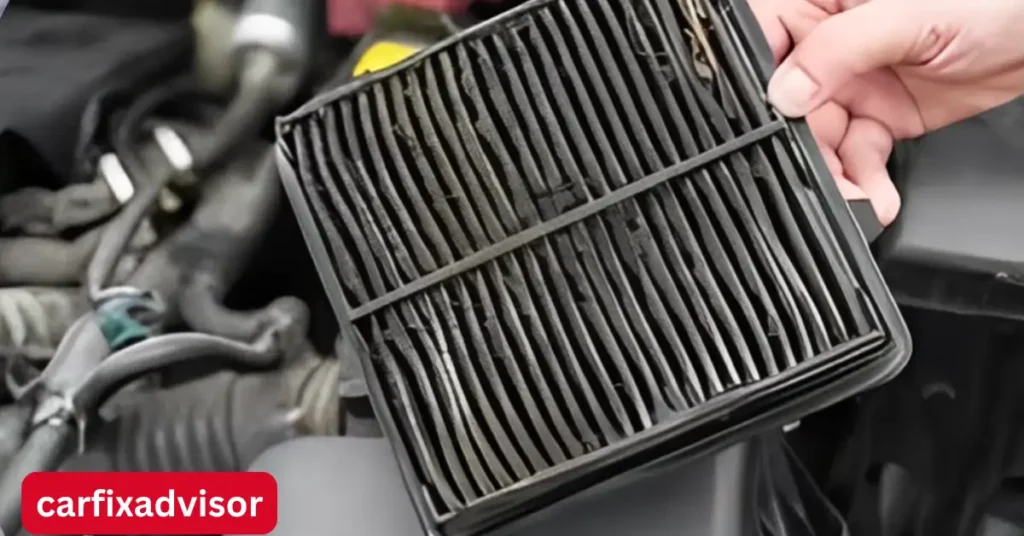Experiencing jerking or sudden jolts when releasing the accelerator can be a frustrating issue for car owners. This problem, commonly described as “car jerks when releasing accelerator,” indicates an underlying mechanical or electrical issue that needs attention. Whether you’re driving a manual or automatic car, sudden jerking during acceleration or deceleration should not be ignored.
In this article, we will explore the common causes of car jerks when releasing accelerator and provide actionable solutions to help you resolve this problem. From fuel system issues to engine maintenance, this guide covers potential causes that may lead to jerking, along with necessary steps you can take to address them.
What Causes a Car to Jerks When Releasing the Accelerator?
Understanding the causes behind car jerks when releasing accelerator is key to diagnosing and fixing the problem. Here are some of the primary reasons this issue occurs:
1. Dirty Air Filter
-
Explanation: The air filter in your car is responsible for keeping contaminants such as dirt, debris, and dust out of the engine. Over time, these filters can accumulate pollutants, causing airflow restrictions. This disruption affects the fuel combustion process, leading to jerking when the accelerator is released.
-
How to Fix: If your car jerks when releasing accelerator, check the air filter for dirt and damage. Replacing a dirty or clogged air filter can restore airflow to the engine and prevent jerking issues.
2. Fuel System Problems
-
Polluted Fuel Injectors and Tank: Fuel injectors and fuel tanks play a vital role in delivering the correct amount of fuel to the engine. If these components become contaminated with dirt, rust, or debris, the engine may not receive the proper amount of fuel, leading to jerking when releasing the accelerator.
-
Solution: Cleaning the fuel injectors and tank or replacing damaged components can fix this issue. It’s also a good idea to replace fuel filters regularly to prevent clogs that may cause jerking.
3. Faulty Spark Plugs or Ignition System
-
Explanation: Spark plugs are responsible for igniting the air-fuel mixture in the engine. If the spark plugs become worn or damaged, they may fail to ignite the mixture properly, resulting in misfires and jerking, especially when the accelerator is released.
-
How to Fix: If faulty spark plugs are the cause of your car jerks when releasing accelerator, replacing them is the most effective solution. Ensure regular inspection and maintenance of the ignition system for optimal performance.
4. Mass Air Flow (MAF) Sensor Issues
-
Explanation: The MAF sensor measures the amount of air entering the engine and helps regulate the air-fuel mixture. A malfunctioning MAF sensor can provide incorrect readings to the engine control unit (ECU), causing an improper air-fuel ratio. This imbalance can result in jerking when releasing the accelerator.
-
How to Fix: If the MAF sensor is the problem, it may need to be cleaned or replaced. Regular maintenance of this sensor can prevent issues that cause car jerks when releasing accelerator.
5. Throttle Body Malfunctions
-
Explanation: The throttle body controls the airflow into the engine, which affects engine performance. Over time, carbon deposits or mechanical failure in the throttle body can cause irregular engine behavior, including jerking during deceleration.
-
How to Fix: Cleaning or replacing the throttle body is essential to restore proper airflow and prevent jerking when releasing the accelerator. Regular maintenance of the throttle body will ensure smooth engine operation.
6. Worn-Out or Broken Acceleration Cable
-
Explanation: In older vehicles, the acceleration cable can wear out over time, causing delays in response when pressing the accelerator. This can result in jerking when the accelerator is released, as the cable does not respond properly.
-
How to Fix: Replacing the worn-out or broken acceleration cable will resolve the jerking caused by cable malfunction. A quick visit to a mechanic can fix this issue and eliminate the jerking when releasing the accelerator.
7. Engine Misfires
-
Explanation: An engine misfire occurs when the combustion process is incomplete or disrupted. Misfires can cause jerking as the engine struggles to perform correctly. These can be caused by faulty spark plugs, a damaged ignition coil, or issues with the fuel system.
-
How to Fix: Diagnosing engine misfires may involve inspecting the ignition system, fuel injectors, or sensors. If you suspect engine misfires are the cause of your car jerks when releasing accelerator, it’s best to seek professional diagnosis and repair.
8. Transmission Issues
-
Explanation: A malfunctioning transmission can also lead to jerking when releasing the accelerator. Whether you’re driving a manual or automatic car, low transmission fluid or worn-out components can cause jerking when the car decelerates.
-
How to Fix: Check the transmission fluid levels and condition. For manual transmissions, the clutch may need to be replaced or adjusted. For automatic transmissions, professional repairs may be required to resolve the jerking issue.
9. Moisture Accumulation in Distributor Cap (for Older Cars)
-
Explanation: In older vehicles, moisture can accumulate inside the distributor cap, disrupting the ignition system. This is especially common during wet or cold weather when you park your car outside. The moisture can cause electrical issues, leading to jerking when releasing the accelerator.
-
How to Fix: Ensure the distributor cap is sealed properly to prevent moisture buildup. If the moisture issue persists, replacing the distributor cap and rotor can help resolve the jerking when releasing the accelerator.
10. Clogged Exhaust System
-
Explanation: A clogged exhaust system can hinder the proper flow of exhaust gases from the engine, leading to poor performance. A blocked exhaust system can cause jerking, especially when decelerating and releasing the accelerator.
-
How to Fix: Inspect and clean the exhaust system, including the catalytic converter, to prevent blockage. If the catalytic converter is damaged, it may need to be replaced to resolve the jerking issue.
Solutions for Car Jerks When Releasing Accelerator
Now that we’ve identified the potential causes of car jerks when releasing accelerator, let’s dive into the solutions to address these issues. It’s essential to take action quickly to prevent the problem from worsening, potentially leading to more costly repairs.
1. Replacing the Air Filter
-
How it Fixes the Issue: If the car jerks when releasing accelerator due to a clogged air filter, replacing it is one of the most straightforward solutions. A dirty filter disrupts airflow, causing the engine to work harder to compensate. Once replaced, the engine will be able to breathe easier, and jerking will subside.
-
Steps to Fix:
-
Open the air filter compartment (usually under the hood).
-
Remove the old filter carefully.
-
Replace with a new filter, ensuring it’s securely seated.
-
Close the compartment and test drive to check for improvement.
-
2. Cleaning or Replacing the Fuel Injectors
-
How it Fixes the Issue: If contaminated fuel injectors are causing the jerking, cleaning or replacing them will improve fuel flow to the engine. A consistent fuel supply ensures smooth acceleration and deceleration.
-
Steps to Fix:
-
Locate the fuel injectors (refer to your vehicle’s manual for guidance).
-
Disconnect the battery to avoid electrical shocks.
-
Use a fuel injector cleaning kit or take the vehicle to a professional to clean or replace the injectors.
-
Test the car after the fix to ensure that the jerking stops.
-
3. Replacing Faulty Spark Plugs
-
How it Fixes the Issue: Worn or faulty spark plugs can cause engine misfires, which can lead to jerking when releasing the accelerator. Replacing them ensures smooth combustion and eliminates jerking.
-
Steps to Fix:
-
Remove the old spark plugs with a socket wrench.
-
Check the new spark plugs to ensure they match your car’s specifications.
-
Install the new spark plugs carefully.
-
Reconnect the ignition wires and test the vehicle.
-
4. Fixing or Replacing the Mass Air Flow (MAF) Sensor
-
How it Fixes the Issue: A malfunctioning MAF sensor can provide incorrect readings to the engine control unit (ECU), resulting in jerking. Cleaning or replacing the MAF sensor restores accurate air-fuel ratio readings, resolving jerking problems.
-
Steps to Fix:
-
Locate the MAF sensor (usually near the air filter box).
-
Disconnect the sensor and clean it with MAF cleaner (available in auto parts stores).
-
If cleaning doesn’t solve the issue, replace the MAF sensor with a new one.
-
Test drive the car to check if the jerking stops.
-
5. Cleaning or Replacing the Throttle Body
-
How it Fixes the Issue: Carbon deposits and dirt buildup on the throttle body can cause irregular air intake, leading to jerking when releasing the accelerator. Cleaning or replacing the throttle body restores proper airflow to the engine, resolving this issue.
-
Steps to Fix:
-
Locate the throttle body (refer to your vehicle manual for exact location).
-
Disconnect the battery and the intake tube.
-
Use throttle body cleaner to clean the component.
-
Reassemble and test the car to ensure that jerking is no longer an issue.
-
6. Replacing the Acceleration Cable
-
How it Fixes the Issue: A worn-out or broken acceleration cable may cause delayed responses when you release the accelerator, resulting in jerking. Replacing the cable will fix this issue.
-
Steps to Fix:
-
Locate the acceleration cable (usually near the throttle body).
-
Disconnect the old cable.
-
Install the new cable, ensuring proper tension.
-
Test the car to check if the jerking has stopped.
-
7. Fixing Engine Misfires
-
How it Fixes the Issue: Engine misfires often cause jerking when releasing the accelerator. The solution depends on the root cause, whether it’s faulty spark plugs, damaged ignition coils, or a clogged fuel system.
-
Steps to Fix:
-
Inspect the ignition system for worn spark plugs or ignition coils.
-
Check the fuel system for clogs or contamination.
-
Replace or clean any faulty components.
-
If the misfire persists, visit a mechanic for a thorough inspection.
-
8. Addressing Transmission Issues
-
How it Fixes the Issue: Transmission issues, such as low fluid levels or worn gears, can cause jerking during deceleration. Top-up the transmission fluid, and if needed, replace the faulty components to fix jerking.
-
Steps to Fix:
-
Check the transmission fluid levels and condition.
-
Top-up the fluid if necessary.
-
If the jerking continues, take the car to a professional mechanic to inspect the gears or clutch.
-
9. Moisture in the Distributor Cap (For Older Cars)
-
How it Fixes the Issue: Moisture buildup in the distributor cap can cause electrical issues, leading to jerking when releasing the accelerator. Ensure the cap is sealed properly and replace it if necessary.
-
Steps to Fix:
-
Inspect the distributor cap for signs of moisture.
-
Dry or replace the cap if moisture is present.
-
Ensure proper sealing to prevent moisture from entering in the future.
-
10. Cleaning the Exhaust System
-
How it Fixes the Issue: A clogged exhaust system can cause jerking due to restricted gas flow. Cleaning the exhaust system, particularly the catalytic converter, will improve engine performance and eliminate jerking.
-
Steps to Fix:
-
Inspect the exhaust system for blockages.
-
Clean the catalytic converter and exhaust pipes.
-
If necessary, replace the catalytic converter if it is damaged.
-
Final Thoughts
When your car jerks when releasing accelerator, it can be a sign of various mechanical or electrical issues. Understanding the root causes and applying the appropriate solutions can help restore smooth driving and prevent future issues. From replacing the air filter to addressing fuel system and ignition problems, taking proactive steps will improve your car’s performance and extend its lifespan.


